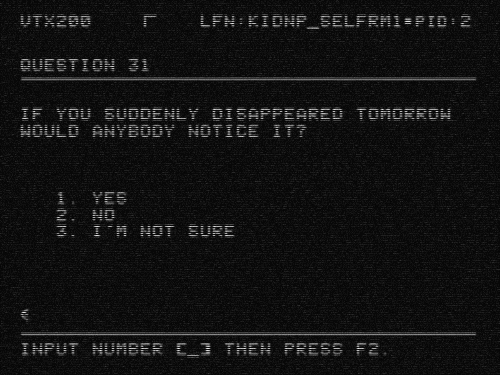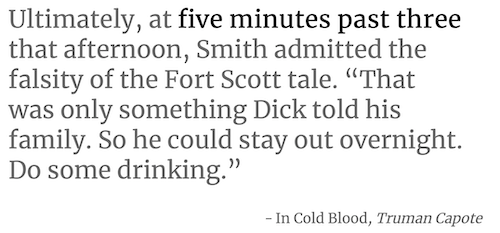LET’S BE FWENDS ISSUE #99:
IN SEARCH FOR POWERFUL QUESTIONS
“Any questions?”
~ Lieutenant Gorman
What are powerful questions and how can craft them? Today we learn how to use them to design great conversations. We’re also taking a fresh look at feedback and how leaders can ask for it, get a great literary clock, and dive into some new level of nerddom with chemical haikus.
Designing Powerful Questions

I am a big fan of Daniel Stillman, his book “Good Talk”, and his Podcast “The Conversation Factory”.
Of course I was thrilled to hear that he was doing a session on “Powerful Questions” at the “Hands on Agile” Meetuphosted by Stephan Wolpers. Unfortunately, I wasn’t able to attend the session, so I’m forever grateful that Stephan made a recording available.
If you can spare one hour, make sure you watch it. Daniel’s energy and presence add so much to his ideas on conversations and how to create them.
Basically,_“everything you do is just an invitation for having a conversation”_is the theme of my work and agile practice. It’s the prism through which I see everything. “Here, I made this”, as Seth Godin put it, can be the start of a deep, human connection.
If you believe this to be true, then you should try to get the most out of your conversations, and craft them, deliberately and with care. Something I am working on every day. Thinking about “powerful questions” - what they are, and what we can use them for - is a great exercise, and Daniels session delivers.
The most powerful question I learned is_“What time do you have dinner?”_, and if that doesn’t make you watch the session then I don’t know what will.
Feedback Magnets

I hate “Feedback”. I love talking to people, and I love growing as a person and a professional. I also love to help others grow. Maybe we are gardeners, at least more than origin and destination of mechanistic loops of exchanging information. “Feedback” boils down to “This is what I think you did, and this is what I think of it”. And if it’s solicited, it’s “This is what I did, now please tell me what you think of it”. Both is narrowing, and reduces the conversation to a pupil/teacher power dynamic. Or forced dishonesty. I wouldn’t know which was worse. We can all be coaches of each other, and here’s an outline how that can work for leaders.
Literature Clock

Elemental Haikus

That’s it from this edition of Let’s be Fwends, thanks for sticking with me. Maybe we can re-invent the art of talking to each other together. Could feedback in Haikus be a thing? 🤔
Subscribe to Let's be Fwends